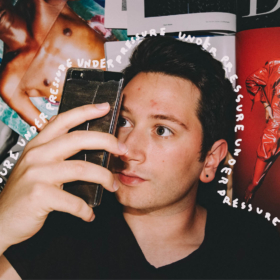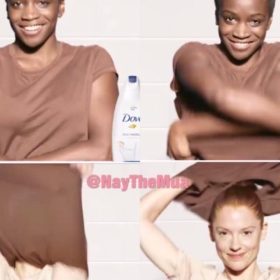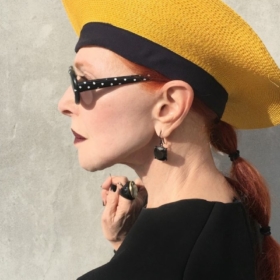We are a society of sharers. We spend our days posting pictures of our actions and tweeting our opinions, hashtagging the relevant words and geotagging our locations to ensure we get the widest reach possible.
Ten years after Facebook hit the mainstream, social media has gone from being a novelty way of passing time to a part of our daily lives. We’re used to spilling all, and we’re accustomed to being able to peek into the lives of others at will. Platforms have come and gone with varying degrees of influence on popular culture (we all look back on Myspace fondly, but who gives a fuck about Friendster anymore?), and the ones that have endured the longest are the ones that are constantly adapting to suit their users needs. But what happens when we, the users of these mass sharing platforms, start calling for lockdown? How will social networks whose foundations are built on connecting people with large audiences adapt to the rapidly growing global desire to restrict what we share, and who we share with?
“The internet has always been, in some way, about connecting people,” says Matt Navarra, the social media director at The Next Web. As far back as the early 90s, rudimentary online message boards allowed like-minded geeks across the world to form their own disparate community, where they could share tips and crack jokes that the people they interacted with in real life might not have understood. As home computers became less of a rarity and the cost of accessing the internet fell, more sophisticated communications technology became available to the masses. If you’re of a certain age, you’ll probably remember the heyday of chatrooms, Cyberworld, and MSN Messenger.
A little later, dedicated platforms that allowed you to build your own personal online profile began to surge in popularity. They were a disparate bunch of sites with wildly differing user profiles – Faceparty allowed teenagers to search for potential new friends in their surrounding area, while Friends Reunited gave older users the chance to hook up with friends they hadn’t seen for years – but their raisons d’etre were the same – bringing people together. By the time Myspace crashed onto the scene in a wave of jet black eyeliner and yowling synth-led emo, online sharing culture had become ingrained in the millennial psyche. Having 1,000 plus Myspace friends was something to aspire to – after all, what was the point in all of those candid bathroom mirror shots and carefully curated lists of favourite songs if you had no global audience to share them with?
Then, in 2005, an unassuming young Harvard student swept in and changed the game. “Since then, it’s all been about Facebook’s domination of the social media space,” says Navarra, who previously worked with the UK government on their digital communications. Other social networks are now trying to build up user bases and communities to rival the big FB – some, like Snapchat, have worked, while others, such as Google Plus, have fallen a bit flat. So what’s the magic formula? How do social networks ensure they stay ahead of the curve?
Staying ahead
“Twitter has been struggling for a while – they’re not on their deathbed but they’ve been out-innovated in many ways,” says Navarra. “Facebook, on the other hand, has almost become the first mover in seeing what people want to do online, responding to that information and making their platform more successful as a result.”
Responding to the needs of all its users is a tough thing to do – Facebook alone has a huge number of users from backgrounds across the world, each demographic expecting and wanting different things from the site. However, as the generational gap widens, millennials and teens across the world are becoming more and more similar. According to Time Magazine, the average Chinese teenager has more in common with an American teen than with their own grandparents, despite the gaping cultural differences between the two countries. The global youth are driving the evolution of social media by forging new online communities, where shared interests and worldviews trump inherited cultural and social tradition. However, this doesn’t mean that teenagers are opening up to more people across the world – quite the opposite.
“A lot of young people are moving away from using platforms like Facebook regularly, because they’re far too public,” says Paul Weate, a psychology PHD student from Thornbury who is studying the relationship between teens, social media, and alcohol. “People are more aware that teachers, family members and future employers can see what they’re putting on there, so they rigorously self-edit, and stick to a few pictures of them looking sober, active, and moneyed. They know that this is their permanent footprint.”
We’re all aware of the havoc that one ill-advised tweet or Insta-post can wreak on our lives, but today’s teenagers have had the importance of clearing up their digital profiles drilled into them from birth. They’re not about to let a compromising party times picture ruin their college application, so they treat platforms like Facebook and Instagram, where uploaded content is as good as permanent, as a kind of heavily curated online curriculum vitae. Day-to-day postings have moved to platforms like Snapchat – fast-paced apps that delete pictures and videos after 24 hours. These fleeting posts aren’t being hashtagged to hell and shared with the world, either. Profile privacy settings are on maximum, and posts are mostly restricted either to people who know each other, however tenuously, IRL. “People are still sharing all the silly stuff,” says Weate, “they’re just a lot more cautious about how they do it.”
Keeping up with the kids
I know what you’re thinking right now. Ugh, another old-person article about how those darn kids use social media. BOR-ING. But listen up and pay attention, because the way millennials and Generation Z are choosing to use social media is shaping the development of new and existing social network platforms.
“Platforms are going to diversify a lot more than they already have,” says Weate. “We’re moving towards the formation of online neo-tribes. A lot more people are forming their own little echo chambers on their particular platforms – lots of little diverse, isolated online communities.”
Matt Navarra agrees; “We’re seeing the rise in popularity of niche social networks, which are highly popular because it’s sharing, but sharing within small messaging clusters that you set up among friendship groups. That’s why Facebook is pushing groups so hard at the moment – they can see that that’s where people feel more comfortable sharing things, and where the growth area is.” In fact, on June 22nd, Facebook changed their mission statement to reflect this shift. Instead of aiming to connect more people, they want to “bring the world closer together”. When Facebook acknowledges a trend in social media usage, you can be pretty sure it’s the real deal.
Endless feeds of nothingness
We seem to be witnessing a kind of sudden online introversion – after a decade or so of rampant over-sharing and connection with strangers, the next gen are turning back to the friends they know in the “real” world, using social media to facilitate face-to-face hangouts and to strengthen their relationships. Does this mean that young people might not be as hung up on social media as we think?
Not likely. “I use social media throughout most of the day,” says Nicola Ffrench, an 18 year old musical theatre student from Gloucester. “It’s the first thing I check in the morning and the last at night.” She has profiles on Facebook, Twitter, Instagram, and Snapchat – “ I use social media as my main way of communicating with my friends, finding out information and killing boredom.” She doesn’t remember a time without it, but does remember when it wasn’t as essential to our lives as it is now.
Like Nicola, 18 year old bank clerk Alfie Peachey spends “at least a couple of hours a day” on social media. He doesn’t post much, but he says he spends a lot of time looking at what people in his social circle have posted. “Some of my friends may as well be sponsored by Snapchat, and I feel like it’s gotten to a point now where I can’t see life without social media,” he says. Nicola agrees – “If someone was to take away all of my accounts now, I wouldn’t know what to do!”
However, both teens can’t help feeling that they’re a little too plugged in. “If I’m honest, I would say that I use social media too much,” says Alfie. “I can find myself scrolling for hours through an endless news feed of nothingness, which is both time consuming and counterproductive. I think it would be refreshing to not have social media, and I would like to see how I would cope.”
Nicola is often told that she uses social media too much. She admits to acting differently online, and worries that her face to face interactions are suffering as a result. “I think it has affected the way I communicate with people in person,” she says. “When you’re using your ‘internet persona’ for a long time, it changes how you act around people.” She also turns to social media when real-life interactions have the potential to get awkward – retreating back to the ease of her online ‘tribe’ rather than working through a slightly strained social situation.
“There is some evidence to suggest that people who spend large amounts of time on social media develop poorer social skills,” says Paul Weate. “You have neurons in the brain forming connections – if new neurons aren’t being formed as a result of less face to face social interaction, people might be worse at reading other people and processing that information.”
Though people feel more connected to their close circles than ever before, these guarded, tight-knit online groups might be getting worse at actually interacting with each other in the real world. It throws up big questions: How valuable is all of this virtual connectivity if we can’t quite connect with one another in person? Are we spending too much time chasing throwaway interactions, or is this simply a harmless and natural evolution in the way humans communicate? After all, society is always changing – everything is temporary. People will always change and adapt, and not necessarily for the worst. In any case, the moral panic that has exploded around this purportedly socially inept generation might be a bit premature. “The likelihood is that you can undo this kind of ‘damage,’” says Paul. “New neurons can be formed as people learn how to interact socially again.”
The echo chamber effect
So all is not lost, and our children probably won’t become glaze-eyed, unthinking tech zombies just yet. But none of us are about to step away from our devices and profiles anytime soon. What does this expansion of platforms and contraction of networks mean for society as a whole over the next decade?
“People tend to engage with certain pages or people who reflect the same priorities and perspectives on life as they do, because it reaffirms their beliefs and makes them happier,” says Matt Navarra. “But if you’re only getting news from one source of information, you only see one side of the news and that lead to you being very biased. Being exposed to opposing views is a healthy thing.”
The echo chamber effect on Facebook and Twitter has been hot news for the past year, especially in the wake of the Trump and Brexit elections which were fuelled by the rampant sharing of real and fake political content. We might see a welcome drop in piss-poor content as people become less comfortable with sharing online and start pulling up the drawbridge on their communications, but that – combined with ever more efficient algorithms that deliver only the most relevant content to our screens – also means that we’ll all be seeing a far more limited view of the world. It’s nice to live in a virtual bubble where everyone seems to agree with you, but it’s dangerous, too.
However, could this just be society realigning itself a little? After all, humanity has spent the past few hundred years moving in relatively small social circles. From the workplace to the street to the bar, until recently we have been unlikely to experience in-depth encounters with many people whose cultural, socioeconomic, and ideological backgrounds differ wildly from our own. This decade of connectivity, and the subsequent exposure to 1,001 different viewpoints, might just have been too much for us to handle, forcing us to subconsciously retreat back to the small, comfortable niches we already know. Is this return to tribalism merely a reflection of the ways in which we have always banded ourselves together offline?
The future’s virtual
Time will have to tell. For now, technology is speeding forward, and it looks like we’ll be spending even more of our time tuned in to social media.
“Technology is being researched that will allow you to interact with Facebook with your brain,” says Navarra. “There is the possibility of being able to type with your mind – these sort of things are being thought about now.” The thought of allowing Facebook, a company that openly uses your data to send you targeted advertising and political messages, access to your brain sounds pretty disconcerting, but the things that are nearer to being realised are thankfully a little less Big Brother. As our mobile phone devices reach peak development, social network companies are looking to new pastures and some of the developments could mean that our addictive little handsets become obsolete within the next ten years. “Facebook recently showcased a virtual reality app they are testing,” says Navarra. “You put on an Oculus headset and actually interact with other users in your friendship group. You see them as a physical cartoon version of themselves, and see yourself in an environment which is completely virtual. I think Facebook wants that to be the next big shift in how you use their social network.”
It sounds cool – who doesn’t want to hang out with their crew without having to get ready and leave the house? The development of VR social media could add a whole new dimension to the way we communicate with groups of friends, and offers a wealth of possibilities – free rock concerts, lectures, or ‘nights out’ that don’t involve bucketloads of booze and a walk of shame home. But in all of this we have to remember who is really in control. We as users might be driving the evolution of social media, but the networks still hold the aces. The more we interact with our platforms of choice, the more personal information we hand over to unseen faces who place a premium on knowing as much about us as they possibly can. Although we are limiting access to our profiles to a select group of peers, Facebook, Snapchat, and the rest still have their beady eyes fixed on everything we do.
Generation newborn
Finally, what of the kids who will grow up having never known anything but social media? An entire generation is being raised with a smartphone in their hand and their finger on the like button – how will they grow into a life where everything is meant to be shared? Ben Wilcox, a 29 year old British IT professional living in Geneva, has a nine month old son. He worries about the negative effects social media might have on his child in the future – “I will not stand for him sending dick pics to random girls!” – but resigned to the fact that it will be a part of his life for good. However, he’s keen to limit his son’s exposure to social networks until he’s old enough to understand the implications of using it.
“I want to keep things with my kid personal – I don’t want to be sharing him with Facebook,” he says. “The way I see it, it’s like a religion. If I indoctrinate my son into social media without his permission, I’m just throwing him out there to the world. I don’t know what Facebook’s end game is, but I find a lot of what they do invasive.”
So what will Ben do if his son does decide he wants a social media account (or seven)? “I want him to know he can share moments of his life if he wants to, and he should know to lock posts down so only friends can see them,” he says. “I’ll encourage him to use it, but sensibly, and to be very cautious about what he shares.”
As young people dictate the unofficial user guidelines to the newborn generation, perhaps the days of all-out sharing are coming to an end. From now on, our social media circles might look a whole lot more streamlined, and tomorrow’s generation may never know the thrill of having 30 strangers ‘like’ their photo. Then again, who knows? After all, when it comes to the internet, everything can change in the time it takes to set a profile to private.
Photography: Sara Tortora






